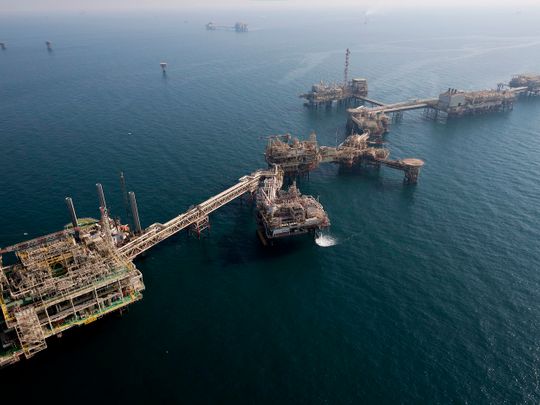
Abu Dhabi: Abu Dhabi National Oil Company has struck a $20.7 billion deal with six global investors, whereby the latter will invest $10.1 billion to acquire a 49 per cent stake in a newly set up subsidiary.
Adnoc Gas Pipeline Assets will see the Abu Dhabi energy giant hold 51 per cent, according to agency reports.
The group of six will have lease rights to 38 pipelines. The six are Global Infrastructure Partners, Brookfield Asset Management, Singapore wealth fund GIC, Canada's Ontario Teachers’ Pension Plan Board, NH Investment & Securities and Snam.
The transaction structure allows Adnoc to tap "new pools of global institutional investment capital", while maintaining full operating control over the assets included as part of the investment.
Under the terms of the agreement, ADNOC will lease its ownership interest in the assets to ADNOC Gas Pipelines for 20 years in return for a volume-based tariff subject to a floor and a cap. The transaction will result in upfront proceeds of over $10 billion to ADNOC and is subject to customary closing conditions and regulatory approvals.
The transaction will result in upfront proceeds of over $10 billion to Adnoc and subject to customary closing conditions and regulatory approvals.
The gas pipeline network connects Adnoc’s upstream assets to local UAE cutomers. Ownership of the pipelines, management of pipeline operations, and all responsibility for associated operational and capital expenditures will remain with Adnoc.
For the partners, this transaction represents a "unique opportunity to invest in quality energy infrastructure assets with a low-risk profile that generate stable cashflows".
Meanwhile, Adnoc said it will keep a tight lid on its cost amid low oil prices and a gradual recovery in global energy demand, the chief executive told Reuters. Sultan Al Jaber, who is also UAE Minister of State, said Adnoc will continue to work with strategic investors to attract foreign capital and focus on maximizing value from its resources.
"Today’s landmark investment signals continued strong interest in Adnoc’s low-risk, income-generating assets," he said. "And sets another benchmark for large-scale energy infrastructure investments in the UAE and the wider region.
"It solidifies Adnoc’s position as an attractive partner and reinforces the UAE’s track record as the region’s go-to foreign direct investment destination, even during the current unprecedented circumstances."
Record making moves
The Adnoc transaction value "surpasses KKR & Co.'s agreement in March to buy the waste-management arm of UK utility Pennon Group for 4.2 billion pounds ($5.2 billion), and Portuguese oil company Galp Energia SGPS SA's plan to sell its gas-distribution assets for as much as 1.5 billion euros ($1.7 billion), Bloomberg reports.
It's the largest transaction in Abu Dhabi's three-year push to use energy assets to attract foreign direct investment.
Since then, Adnoc entered the debt capital markets for the first time, issuing a $3 billion bond backed by the Abu Dhabi Crude Oil Pipeline; partially floated Adnoc Distribution - the first-ever IPO of an Adnoc Group company - and entered into several strategic partnerships in its drilling, refining, fertilizer and trading businesses.
* The UAE holds the world’s sixth-largest natural gas reserves. Adnoc’s "gas strategy aims to meet in-country gas demand and support the UAE in achieving gas self-sufficiency," the company said in a statement. "Dynamics for the UAE gas market are attractive, driven largely by domestic utilities and growing industrial production, in addition to the demand created by Adnoc’s own upstream and downstream activities."








